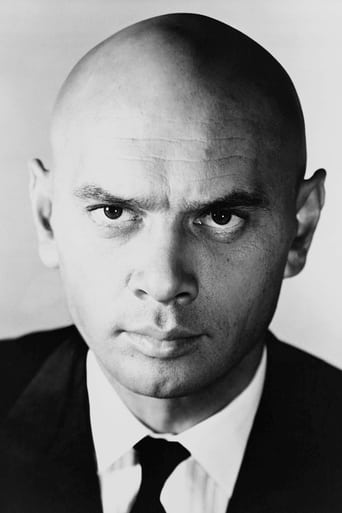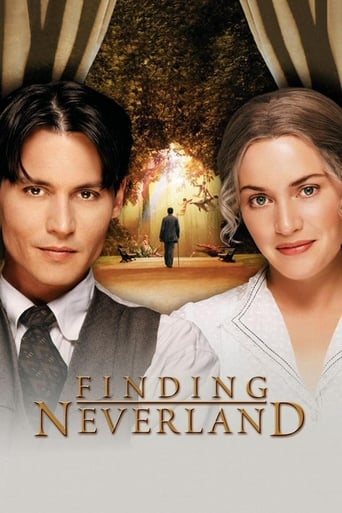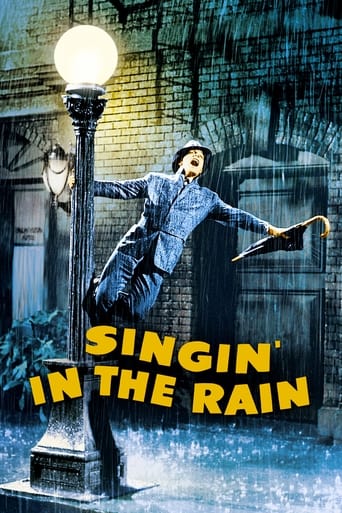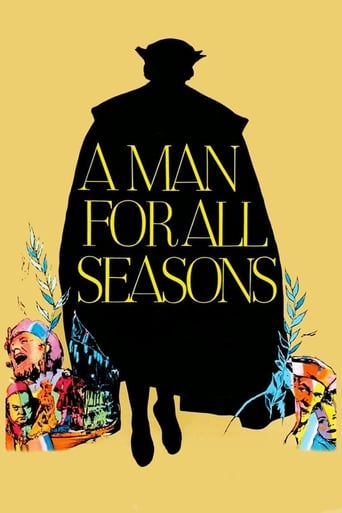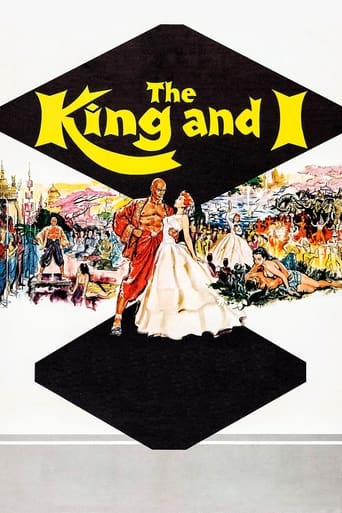
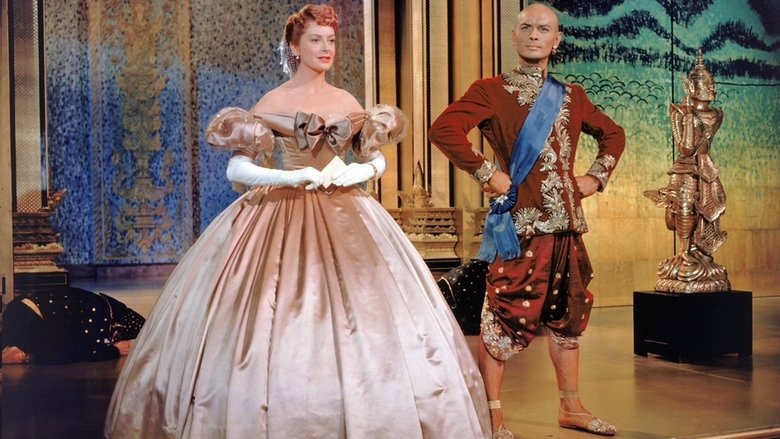
The King and I (1961)
Widowed Welsh mother Anna Loenowens becomes a governess and English tutor to the wives and many children of the stubborn King Mongkut of Siam. Anna and the King have a clash of personalities as she works to teach the royal family about the English language, customs and etiquette, and rushes to prepare a party for a group of European diplomats who must change their opinions about the King.
Watch Trailer
Cast
Similar titles
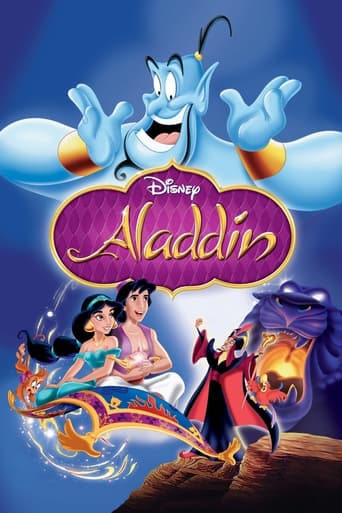

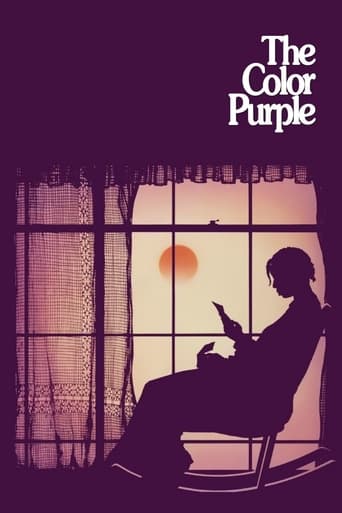
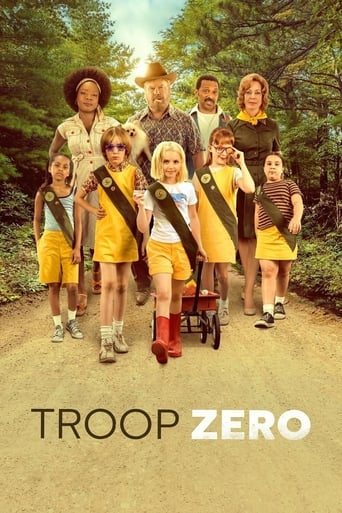
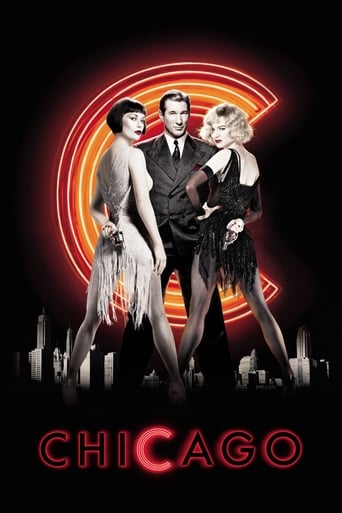
Reviews
Sorry, this movie sucks
Just what I expected
Good start, but then it gets ruined
I cannot think of one single thing that I would change about this film. The acting is incomparable, the directing deft, and the writing poignantly brilliant.
It's a testament to the abiding cultural affection towards The King and I that all its contemporary criticism follows a similar template of "Well, sure, it's fairly racist, BUT ". It's also a surprisingly fitting extrapolation of the film's core 'don't judge a book by its cover' theme. Among the most beloved Rogers & Hammerstein adaptations to transition to the big screen, the film's over-reliance on uncomfortably antiquated Orientalism, dubious history, and, more than anything, prolific, squirmy yellow-face might at times feel, in the words of the film itself, "barbaric." BUT ! Behind the objectionable trappings lie a simply lovely tale brimming with nostalgia, charm, humour, infectiously hummable songs, and a surprisingly poignant and heartfelt commentary unpacking the tension between tradition and modernity. Is it acceptable to set social politics aside altogether? No, but it is appropriate - nay, necessary - to, on occasion, push them to the back burner in favour of following your heart. Etcetera, etcetera. Rather considerately, the film assuages our contemporary PC tiptoeing by allowing us to piggyback on the apprehension of our journeying protagonist, Anna. As she whisks herself into the mysterious world of cultural mystery and overachieving bronzers, she immediately disarms our reserve and culture shock with a pristine whistling gag song, a pre-credits wink for us to relax and enjoy our stay. And enjoy we do, as the narrative - a comfortingly familiar first etching of the Mary Poppins/Sound of Music mould to follow - rolls out the players: the unbearably adorable children and their monolithic mentors, Anna and the King. Proceedings are a bit sluggish, but for the next third, our chief task is getting to know them, getting to know all about them, as they warble a roster of iconic, heartwarming tunes. And, slow-going or not, doing so is an utter delight. The King and I is governed not so much by plot as a clearly honed rhetorical question: how to reconcile the past and future through education (there's also a 'forbidden love' subplot, but this isn't interesting so much as a MacGuffin to further fan the fires of the central conflict). Anna is obstinately bound by a pedagogical and moral tradition imported from England, whereas the King, in attempting to rule proactively (while also subtly stirred by closeted romance), weds Western science and theology to Siamese social norms and power dynamics, resulting in a schizophrenic sense of national identity. But director Walter Lang unearths more of a richness and tender yearning from the theme than simply 'Grease: Royalty Style,' making the Classical Hollywood conservatism of the film's conclusion, 'punishing' the King for his 'sins' with a bout of deus-ex-machina existential depression-sorry-"illness," a jarring, disingenuous dud. Etcetera, et hmm. But enough of that: shall we dance? As with many classical musicals, The King and I's story is second only to the lavishness amidst which it unfolds. And, as a snapshot of the era where production values alone, captured in sumptuous colour and CinemaScope, naturally, were enough to lure audiences away from their televisions to the cinema, it's still hard to stifle oohs and ahhs at the sheer gorgeousness of the mise-en-scène, with sets, props, and costumes (Deborah Kerr's hoop skirts alone are so capacious they could only be shown in CinemaScope) bursting with vivacious colour and aesthetic intricacy. Even the tangential Russian doll of wince that is a white actor in yellow-face narrating a Thai adaptation of Uncle Tom's Cabin(!!) of all things, plays as a rapturously beautiful dance piece, a Hamlet-like "the play's the thing!" style political subtext-laden interlude replete with jaw-dropping costumes and choreography. And if such an absurd cluster of cringe-worthy elements can still conflate to create something beautiful the film must surely achieve some level of incredulous masterpiece, for simply existing as more than the sum of its parts. Still, the film would be nothing without its two unforgettably commanding performances pumping it full of heart and humanity. Deborah Kerr (whose singing is seamlessly dubbed by the vocally flawless Marni Nixon) is an earnest firebrand of a lead, and plays Anna's uncompromising zeal, quiet tragedy, and coy interpersonal and political machinations to an energetically irresistible hilt. Thanks to her unwavering conviction, the film, now over 60 years old, remains as feminist as it is racially unwieldy (take notes, My Fair Lady !). Nonetheless, there's no question the film belongs to Yul Brynner. Imperious and formidable as he is nimble, jubilant, and slyly playful, Brynner is so overwhelmingly charismatic that qualms about his dubiously inappropriate casting are quickly swept aside in favour of his magnetic presence and bold physicality, his ferociously furrowed brow or cheekily dropping to his belly immortalizing more power than any Oscar-baiting soliloquy. A more grotesquely Hollywood production would cave to convention and requite their subtly stirring romance, but leaving their simmering, tantalizing tension unrequited is scintillating movie magic. Shall we dance? No - we shall swoon.The King and I remains that difficult paradox of an indisputable classic that remains hard to reconcile as a 21st century watch; moreover, it's overlong, and verges on plodding, even for its time. Nonetheless, the power, vibrancy, and voluminous charm inherent are infectious, making the film a hugely worthwhile, guilty cheat for even the most steadfast pundits of PC purity. Is it still worth watching, in spite of it all? There's no puzzlement about it. -7.5/10
After many years I watched this again. If you compare it to the stage musical there are a few significant cuts to the score. For the film I think it makes it work better; some thing onstage don't translate well to film which is much more realistic. As much as I love this work, it did feel as it was about 10 minutes too long. Does anyone ever mention that The King's death is probably a suicide? It happens quite shortly after the ambassador's visit. The astonishing thing this time was the production. The last time I saw this movie was on a print that was so washed out, everything looked orange. This time it was glorious and I came to realize that the production was not much different from the stage. Everything was an obvious set. For me it made the film much more powerful. The Small Cabin of Uncle Thomas was so much better than I remembered it. There is tremendous restraint and sensitivity in this work. The choreography is very specific in purpose. The songs are gentle in their range except for "Something Wonderful." When we finally get to "Shall We Dance" the sexually chemistry between Brynner and Deborah Kerr is hot!. Of course this is Brynner's movie. With a role like that, how could it not be. But Kerr's seriousness grounds everything. Could any other actress of the 1950s have done this role so beautifully? I doubt it. You will laugh a lot, hum along even more and even shed a few tears. What more could anyone want?
I personally feel The King and I is a fantastic piece of Cinema History. I found it amazing how the Studio uses simple tricks with Props, Perspective Shots and painted Backdrops to make the Palace look opulent and Grand. The extremely well written and catchy Songs stood their ground even without great Vocals. The Casting was absolutely brilliant! In a Role that seemed to be written only for Yul Brynner who showed his incredible ability to go from a joyful smile, to the Kings menacing frown within moments was absolutely superb and the coupling with Deborah Kerr despite her seemingly trying to out-act Yul in most scenes worked well. The Siamese version of "Uncle Tom's Cabin" showed just how much thought went into this Movie etc, etc, etc
I have recently watched this movie on my VHS tape for the first time I can remember, because my grandparents used to own the tape and they gave it to us. I have to say that, while this movie has a depressing ending, this movie has a really good soundtrack, and I love all the beautiful gowns Deborah Kerr wore in the film. Not to mention the phenomenal performance of Broadway star Yul Brynner, who played the King of Siam in the film as well as the show. He was great. This is just a fantastic musical flick and is superior to the animated King & I remake from the 1990s. I like the animated version of this R&H show as well, but I just think this one is the best. This would probably be my second favorite Rodgers and Hammerstein musical hit, my first being "The Sound of Music" of course.

